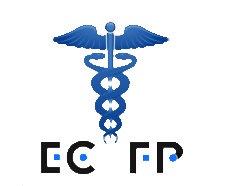Men often exhibit a certain stoicism when it comes to their health, occasionally avoiding necessary check-ups and overlooking early warning signs. This phenomenon often leads to delayed diagnoses and missed opportunities for early intervention. Prostate cancer, a formidable adversary that affects one in every eight men during their lifetime, serves as a poignant reminder of the necessity for proactive healthcare practices.
As the second most common cancer among men, it’s crucial to be informed about the risks, symptoms, and prevention measures. At East Cary Family Physicians, we believe that awareness is the first step in managing your health effectively. In this blog, we’ll delve into the basics of prostate cancer, from understanding the risks to exploring preventive strategies.
Understanding the Prostate: The prostate is a small gland located below the bladder in men. It’s responsible for producing seminal fluid, which nourishes and transports sperm. Prostate cancer occurs when the cells in the prostate gland start to grow uncontrollably, leading to the formation of tumors.
Symptoms: Prostate cancer often develops slowly, and in its early stages, may not exhibit any noticeable symptoms. However, as the cancer advances, it can lead to:
- Urinary Problems: Difficulty in urination, frequent urination, weak urine flow, or pain while urinating.
- Blood in Urine or Semen: Unexplained blood in the urine or semen can be an alarming sign.
- Discomfort in Pelvic Area: Persistent pain or discomfort in the pelvis, lower back, or upper thighs.
- Erectile Dysfunction: Difficulties in achieving or maintaining an erection.
Risk Factors: Various factors can increase the risk of developing prostate cancer, including:
- Age: Prostate cancer is rare in men under 40 but becomes more common as they age. Men above 50 are at higher risk.
- Family History: A family history of prostate cancer can significantly increase your risk. If a close relative has had prostate cancer, your risk is higher.
- Race/Ethnicity: African American men are at a higher risk of developing prostate cancer, and they are more likely to experience aggressive forms of the disease.
- Diet: High consumption of red meat and high-fat dairy products and a diet low in fruits and vegetables may increase your risk.
Prevention and Early Detection: Preventing prostate cancer begins with a proactive approach to your health. Here are some steps you can take:
- Healthy Diet: Incorporate a diet rich in fruits, vegetables, and whole grains while reducing red meat and high-fat dairy products.
- Regular Exercise: Engage in physical activity to maintain a healthy weight and overall well-being.
- Screening: Regular screenings, such as a prostate-specific antigen (PSA) blood test and a digital rectal exam (DRE), can aid in early detection.
- Know Your Risk: Understanding your family history and risk factors can help you and your healthcare provider make informed decisions about screening and prevention.
- Consult Your Healthcare Provider: Discuss your risk factors with your doctor to determine the best screening schedule for you.
Prostate cancer is a significant health concern for men, demanding heightened awareness and proactive engagement. By staying informed about risk factors, recognizing subtle symptoms, and embracing preventive measures, men can seize control of their well-being. Timely detection and medical intervention can markedly influence the outcome. At East Cary Family Physicians, we emphasize the significance of regular health check-ups and candid dialogues with healthcare providers. Your health is our foremost concern, and we are dedicated to supporting your journey toward a healthy, cancer-free life. The moment has arrived to set aside excuses and prioritize your health with unwavering commitment.


